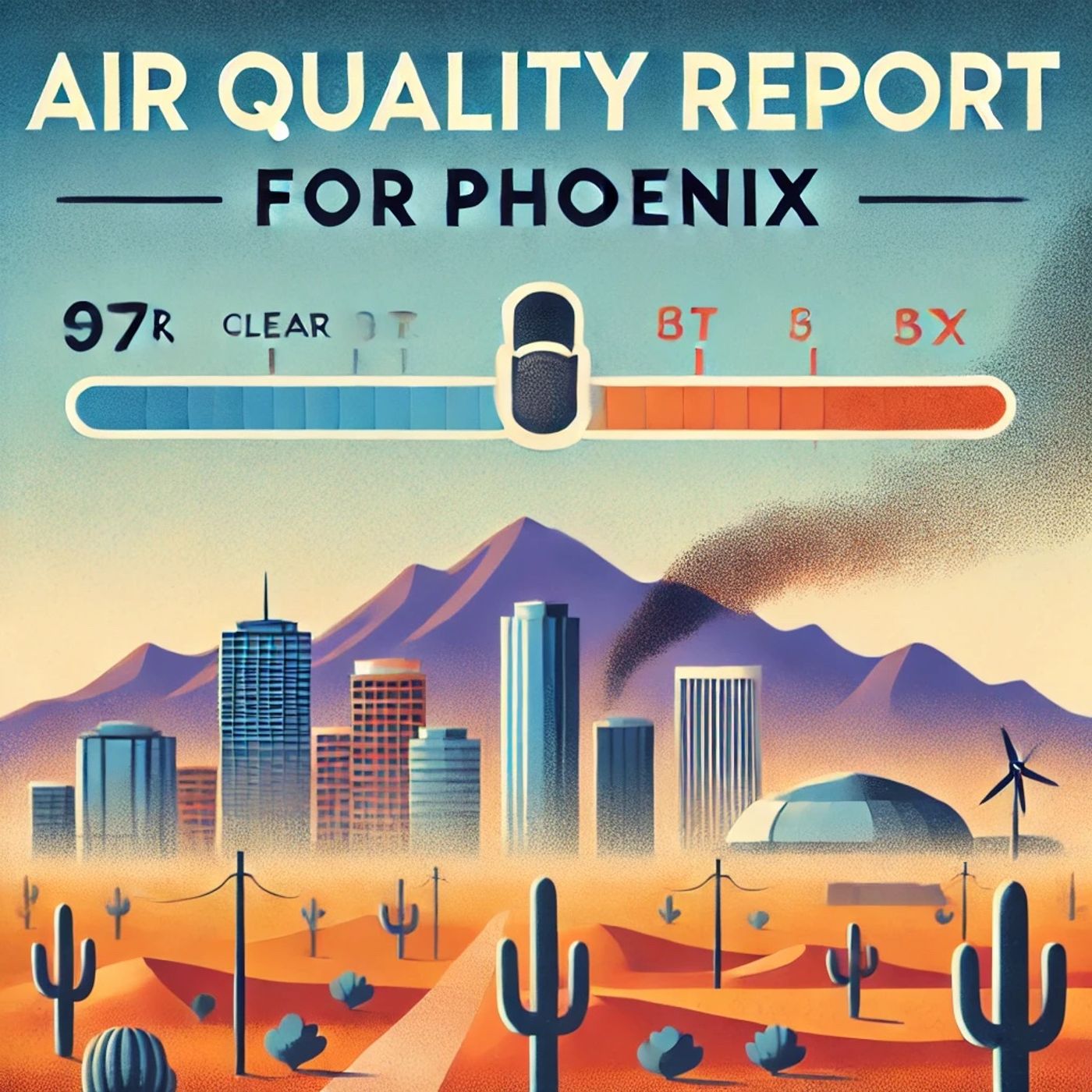Listen "Phoenix Air Quality Moderates, Cautions for Sensitive Groups"
Episode Synopsis
As of today, Phoenix, Arizona is experiencing moderate air quality conditions, influenced by various environmental factors common to this period. The Air Quality Index, or AQI, in Phoenix typically reflects the presence of common pollutants such as ozone, particulate matter (PM10 and PM2.5), carbon monoxide, and nitrogen dioxide. Currently, the AQI suggests that sensitive groups, including children, the elderly, and individuals with pre-existing respiratory conditions, should limit prolonged outdoor exertion.Ozone levels, particularly during warmer months, tend to rise due to high temperatures and abundant sunlight. This photochemical pollutant is typically higher during late spring and summer but can still pose risks in early fall. The ozone in Phoenix today is at a level where it may start causing minor respiratory discomfort for sensitive demographics, especially during peak afternoon hours.Particulate matter, especially PM10, is another significant contributor to today's air quality. Phoenix's desert surroundings and construction activities often stir up dust, increasing PM10 levels. Although PM2.5 is less of a concern on a moderate AQI day, it can still impact those with respiratory issues. Monitoring updates are essential, as wind conditions might alter particulate matter concentrations rapidly.Recent weather patterns also play a crucial role in today's air quality dynamics. Phoenix often experiences inversions during cooler months, trapping pollutants closer to the surface, which can lead to higher concentrations of harmful particulates. However, stronger autumn breezes may help disperse pollutants, bringing temporary relief.Local authorities advise Phoenix residents to stay informed through official air quality updates and alerts. Reducing outdoor activities during high pollution times can minimize adverse health effects. Using air purifiers indoors and keeping windows closed during peak pollution times can also help mitigate exposure. Commuting during off-peak hours or using public transportation can reduce vehicle emissions, contributing to improving overall air quality.Efforts continue to maintain and improve Phoenix’s air quality. Regulations aimed at reducing emissions from vehicles, local industries, and construction sites have been crucial in controlling pollution levels. Additionally, sustainability initiatives promoting public transportation use, carpooling, and renewable energy use are vital components of ongoing efforts to address air quality challenges.In conclusion, while today's air quality in Phoenix is moderate, there are still implications for certain populations, and precautions are recommended. Awareness and proactive measures remain key to managing health impacts and contributing to long-term air quality improvements in the region.This content was created in partnership and with the help of Artificial Intelligence AI
More episodes of the podcast Phoenix Air Quality Report - Daily
Phoenix Enjoys Excellent Air Quality Today
23/08/2025
 ZARZA We are Zarza, the prestigious firm behind major projects in information technology.
ZARZA We are Zarza, the prestigious firm behind major projects in information technology.
